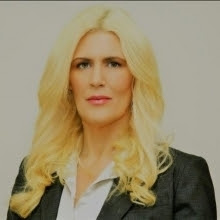Weathering the Storm: Navigating Resource Constrained Waters
The economy, like the weather, is a complex system that cycles through good times and bad. Inflation, stagnant growth, debt, tight credit, rising commodity prices, and the retirement of the baby boomers… these forces are coming together to create a tempest that will test the seamanship of project managers and business leaders over the coming year or two.
A sea captain needn’t be a meteorologist to lead his or her crew through a storm. As a project leader or project manager, you may not be an economist, but you must prepare to deal with the consequences of an economic downturn on your projects.
Some of us (those with greyer hair or grown children) have been through this before. Our experiences with projects in the 80’s, 90’s, 2001-2003, and 2008 help us know some of what our projects can expect as the economy slows. History tells us organizations that respond quickly and adeptly are more likely to survive and prosper than those that ignore the problem or deny it until it is too late.
Costs increase. Revenue slows. Profits dwindle. Money available for discretionary spending drops. In the public sector, tax revenues drop, squeezing budgets. Executives in your organization will be under increasing pressure to reduce spending. Some organizations will deal with this more thoughtfully than others.
Inexperienced or poorly managed organizations will implement “across the board budget cuts”, threatening the viability of mission critical efforts as well as nice-to-have projects without regard for the risks, rewards, or operational priorities of the organization.
- What steps can you take to prepare for leaner budgets?
- What challenges can you anticipate when budgets get tight?
- What opportunities might present themselves?
- What risks should be re-considered?
- What additional demands can be expected of project managers and project sponsors when budgets are tight?
- How can you prepare senior executives for difficult decisions they may soon face about which projects live, which projects die, and which are delayed?
This prepares project managers and sponsoring executives for some of the project challenges to be expected during tight fiscal times.
Economic conditions rise and fall. Wherever they find themselves in the economic cycle, good project managers should prepare for downturns and changes in budgeting priorities if they want to deliver best value and be successful in their careers.
- Project managers and executives who sponsor projects
Payson Hall is a project management consultant who has worked in Information Technology for over 40 years. He has managed projects, reviewed projects, taught project management, and coached project managers while running a small business through a series of economic downturns. His passion is sharing the lessons he has learned so that others can avoid the mistakes that he has made and observed others making, freeing them up to make new and more creative mistakes of their own.
Upcoming Webinars











































































